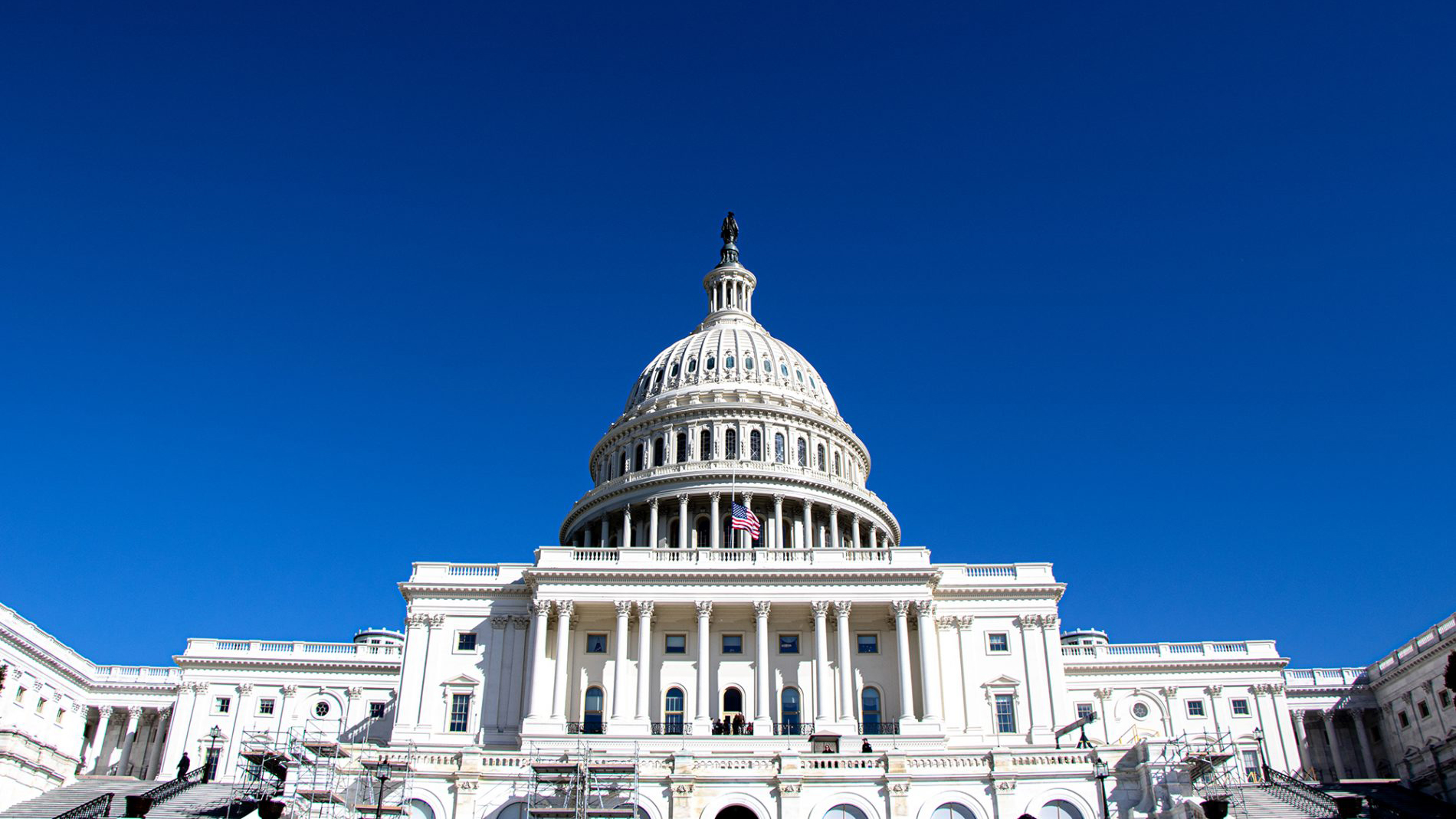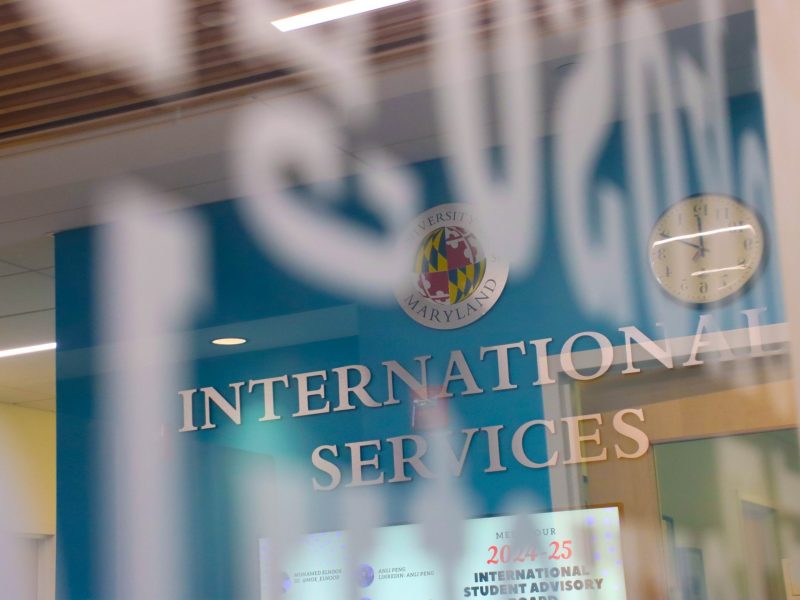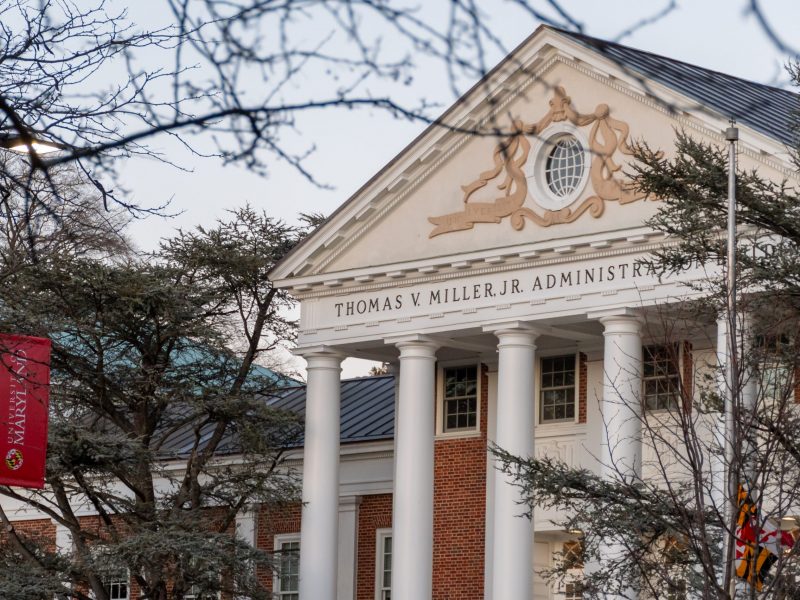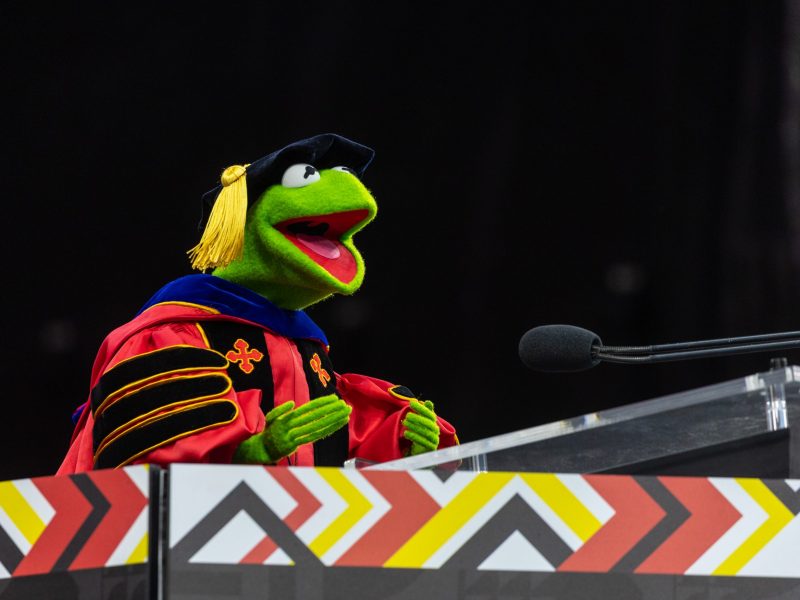Almost all political donations from University of Maryland salaried employees in 2021 and 2022 went to Democrats, according to a Diamondback analysis of federal and state data.
Of the more than 7,200 donations made in the two years, just 55 went to Republican candidates and groups.
Some Democratic donations came from this university’s highest ranking employees. University President Darryll Pines donated $1,300 over the two years, with $1,000 going toward Maryland Gov. Wes Moore’s campaign. Maryland football coach Mike Locksley donated $500 to a Democrat running for Maryland lieutenant governor, and Gregory Ball, the former dean of this university’s behavioral and social sciences college and current research vice president, gave $675 to top Democratic groups.
The data, which included more than 43,000 donations since 2013, indicates employees are becoming more politically active and lean heavily Democratic. Last year marked the second most amount of money donated for a midterm election year, only behind 2018. 2020 saw the most money donated of any year, surpassing 2018 by more than $600,000.
Since 2013, employees have donated more than $715,000 to ActBlue, a main Democratic Party fundraising organization. WinRed, a key GOP fundraising platform, received just more than $7,100.
Employees donated more than $290,000 in 2021 and 2022, with just more than $7,000 going toward Republican candidates and groups.
“That any location in the country is that lopsided in terms of the engaged, contributing, electorate, is quite eye-opening,” James Gimpel, a professor in the government and politics department, wrote in an email.
[Key takeaways from UMD’s salaries report]
Few university departments donated in large numbers to Republican causes. Employees in the public policy school gave $3,900 to Republican candidates and groups in 2021 and 2022, the only department that donated more than $500 to GOP groups.
“We live in such a blue bubble,” Gimpel said.
Four colleges made up more than half of all the donations since 2013: the arts and humanities college, computer, mathematical and natural sciences college, engineering school and behavioral and social sciences college.
Sixteen employees have each donated more than $20,000 in the past decade. Norbert Hornstein, a professor emeritus in the linguistics department, donated more than $284,000 — the most of any university employee.
The strong Democratic lean surprised political science professors at this university. Political contributions nationwide are generally even between the two parties. In the 2021-22 cycle, Democrats received 51.5 percent of federal political donations from individuals, while Republicans received 48 percent. Other parties received just 0.5 percent of donations from individuals.
Stella Rouse, a government and politics professor at this university, said she thinks the gap could be due to the GOP’s rightward shift in recent years.
“You’re talking about conservatives in Maryland. Most of them are likely not MAGA conservatives,” Rouse said. “That distribution there kind of shows me that there is likely not something that the Republican Party is presenting to more moderate or traditional Republicans that they see as a value in contributing their money to support.”
[UMD sees record high in sexual misconduct reports during 2021-2022]
The analysis included donors who listed this university as their employer and whose names matched in university records and their donation. The Diamondback has obtained the university’s list of all salaried employees since 2013 for its annual salary guides.
Matt Johnson, the president of this university’s College Republicans, thinks there is more political diversity among students than employees.
“I don’t think that’s good for a college campus,” the senior finance major said. “A college campus should have political diversity, not just in terms of its student body but in terms of its faculty and staff. It’s a shame.”
In an interview last month, Pines said he found the data somewhat surprising, but that the university does not seek out any political ideology among its employees.
“We look for the best hires for all positions,” Pines said. “So we’re inclusive of all people who think in many different ways politically.”



